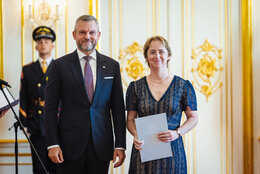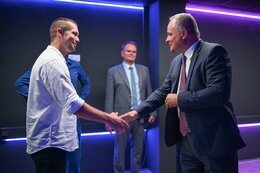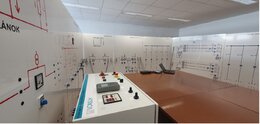SALEIE research project - Strategic ALignment of Electrical and Information Engineering in European Higher Education Institutions, project No. 527877-LLP-1-2012-1-UK-ERASMUS-ENW, was funded by the EU Lifelong Learning Programme and has been solved during the time period 2012-2016. This project has now come to the end. We would like to provide you with the basic information concerning the project structure and to give you the internet contacts to the project results and other relevant detail information. The Slovak University of Technology in Bratislava represented by the Faculty of Electrical Engineering and Information Technology (FEI STU) has been participating in the project as partner No. 14. (see: http://www.saleie.co.uk/projectsite/partners.php). In the SALEIE Project seven workpackages were defined and running. They relate to Electrical and Information Engineering in Higher Education acrosss Europe
- Management – WP1
- Quality – WP2
- Global Challenges – WP3
- Widening Participation and Student Support (Dissabilities) – WP4
- Policy - WP5
- Dissemination – WP6
- Exploitation – WP7
FEI STU has been engaged mainly in the WP3, WP5 and WP5.
The SALEIE project is dedicated to increasing the pool of qualified Electrical and Information Engineering graduates across Europe, through exploring and making recommendations on new curricula and policy and access barriers to student engagement and international exchanges.
For more infgormation seesee http://www.saleie.co.uk/index.php.
The aims of this project are:
Build a shared understanding of the skills and competence needs of graduates to help European Companies respond to the current global technical challenges.
- Enhance current understanding of academic programmes and modules in terms of technical content and level of learner achievement as a means of improving clarity of learner skills and competence for mobility, academic progression and employment.
- At present careful scrutiny of application forms is often required when learners apply for academic experiences (such as work placements and ERASMUS exchanges) to fully understand how well the learner meets pre-requisite requirements; and how exchange programmes meet home institution requirements.
- Build a common understanding of current practices and issues associated with marketing programmes and the support of students from unconventional backgrounds and those with special needs. In this context special need are taken to include, but not be limited to students with: physical mobility problems; dyslexia and dyspraxia; visual and audio impairments; and mental disabilities such as aspergers, autism, depression, anxiety.
- Students with special needs often require adjustments to be made to infrastructure and teaching practices, adjustments that need to be carried out with sensitivity to the students involved.
The specific objectives of this project are to produce:
- Model programme and module curricula in the current global technical challenge subjects;
- Support for students with learners with personal challenges during their study and when wishing to undertake periods of study abroad through ERASMUS exchanges, for example;
- Models for maximising accessibility of programmes to all learners.
Project director:
Anthony WARD (University of York);
email: tony.ward@york.ac.uk
- Project Description
 (359 kB)
(359 kB) - List of project partners
 (301 kB)
(301 kB)
STU-FEI – Project Partner No.14
Jozef Jasenek, Vladimír Jančárik,
Project participants (activities in WP-3,4,5)





